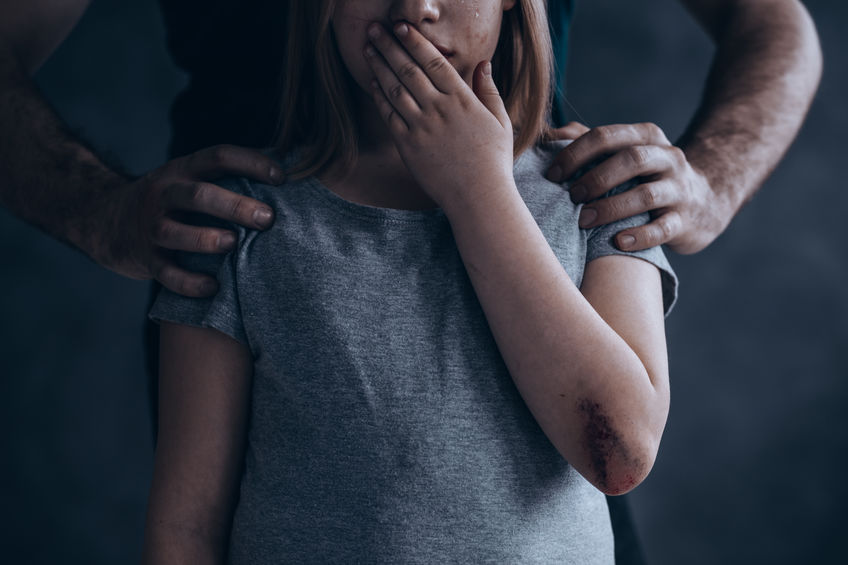By MICHAEL DUXBURY
When the plea deal announced, I awoke at 3:30 am to get ready for work and saw the news: Ashley Johnson-Barr’s murderer pleaded guilty to killing the innocent 10-year-old girl in Kotzebue in 2018.
It is not a victory, and it’s not justice. But it is good to know that he, whose name doesn’t deserve acknowledgement here, will never get the opportunity to act out against the innocence of a young, vibrant, full-of-wonder, tender, vulnerable life again. 99 years is a sentence that ensures he cannot harm another little girl.
This was one of the worst and probably most impactful cases I was involved with in my career in the Department of Public Safety. At the time I was captain commander of Investigations. The cost alone of moving searchers investigators and equipment to Kotzebue for the Ashley Johnson-Barr case was close to $200,000, and if it hadn’t been for our partners in the Kotzebue Police, Search and Rescue, Anchorage Police Department, FBI, ATF, and U.S. Coast Guard, we wouldn’t have had the resources to accomplish the task of trying to find some sense of Justice for Ashley.
What is bothersome is the lack of awareness within the community of Kotzebue and also in many villages about all the real tangible and noticeable warning signs that lead up to this tragic gruesome devastating taking of a life.
“Human behavior pattern recognition analysis” informs us that we must see law enforcement as much more than piecing together, to tell the story for prosecution the devastation of criminal predatory exploitation.
Being able to convict a person has become the fallback or a sign that law enforcement has done a good job.
It is no such thing.
The vulnerability of others exploited by the criminal creates an aftermath that negatively impacts communities and tears the fabric of our social structure to create dysfunction for generations.
As a profession, we need to stop sitting on our hands and become much more than society’s “Spill on Aisle 2” janitors. We need to become radically collaborative and truly proactive. We need to teach, prepare, and protect by engagement and interaction with the communities we serve.
Authority and enforcement as our main go-to tools fall far short of our oath that we will, with our training, education, and experience, do what others cannot do, what others will not do, and what others should not do in service to the public.
Thank you to all who brought your talents to bear in searching for young Ashley, in investigating and enduring the horror of the scene and prosecuting the case.
May we honor this young life by being more interactive and forward-leaning, in hopes of stemming domestic abuse, intimate partner violence, sexual assault, and sexual abuse in our state.
Michael Duxbury is a retired deputy commissioner of Public Safety and affiliated with UAA’s Arctic Domain Awareness Center as an executive counselor.
Read Split-second decision: Man is beating up a woman. What do you do?

Yeah, right … blame the villagers for not doing anything. They complain to the troopers, and they’re told that nothing can be done until a serious crime is committed. Health and Social Services always excuse themselves for lack of resources. One can’t simply break the offenders legs because that will get you tossed into prison for many years. They could “accidentally” fall through the ice, but then which of their relatives will take revenge?
If you’re descended from the “low cast” Native families, you especially have little support from village leaders.
If you’re living in a village, or the bush, you’re again “low caste”, less worthy of limited state resources, and are lower on the list of priorities. Native or White makes little difference in that.
It’s not as cut and dried as some would make it.
@JosephDJ Then what would you say would be the best solution? As you can see from the makeup of the societal detritus parading around town under the guise of being homeless, the bowels of these remote communities have been emptied upon Anchorage for decades. Is that the best way? Shun the dirtbag and make him an evil white man’s problem?
You missed the point Joseph. He was saying we need to start taking care of each other as humans and stop standing on the side line watching with our camera phone on record. You have to think there’s maybe 1000 people (if that) policing 700K people in Alaska. If we don’t take care of each other in sync with the police, we’re no better then the person filming on the sidelines.
In other words, we need to get back to good morals like helping someone you can clearly see is in trouble. The caste system shouldn’t matter because we’re all human in the end. As they say “just because it is doesn’t mean it has to be”
Clam: …societal detritus…? Don’t stop there. Let it all come out…………..
–
Escaped: We have no legal powers to stop any of our people from becoming addicted to whatever. Our VPSO’s have very limited authority, and when they try to arrest some bootlegger or drug runner, there’s a hue and cry that we shouldn’t have powers of arrest over a non-Native.
Having good paying jobs out there would help because whenever we come into town looking for work, we are usually last or never on the hiring list.
Some of us had a chance with Pebble, but you see how that turned out. Fortunately Red Dog and some other mines have brought jobs to some villages, and the Slope has traditionally hired Natives.
I’ve always been able to get work because I was raised by a white man, in your social and political traditions. I couldn’t go live in a dominantly Native village because I’m “too white”.
Wonder what’s meant by “We need to become radically collaborative and truly proactive.”.
Comments are closed.